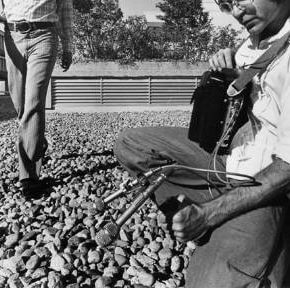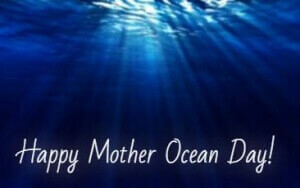July 18 is World Listening Day

Nice work, if you can get it.
Today is World Listening Day. It honors the birth on July 18, 1933, of Raymond Murray Schafer, the Canadian composer, teacher and environmentalist who invented the study of acoustic ecology at Vancouver’s Simon Fraser University in the late 1960s.
Acoustic ecology uses field recordings to create and preserve the planet’s disappearing soundscapes while battling schizophonia, a word Schafer coined to define a unique medical condition. “We have split the sound from the maker of the sound,” Schafer explained.
“Sounds have been torn from their natural sockets and given an amplified and independent existence. Vocal sound, for instance, is no longer tied to a hole in the head but is free to issue from anywhere in the landscape.” We have a strong sensory response to this: it smells like feces and sounds like tenure.
The first World Soundscape Project was born from Schafer’s annoyance at the noise pollution he felt was ruining beautiful Vancouver. It has evolved into a serious course of study. This business of listening seems to rely on a whole lot of talking.
The World Listening Project (WLP) was created in 2008 as a not-for-profit, tax-exempt organization dedicated to understanding societies, cultures and environments by listening and preserving audio. Finally, someone has found a way to achieve tax-exempt status for recording a garage band or just the sound a garage makes.
WLP and the Midwest Society for Acoustic Ecology (MSE), under the auspices of the American Society for Acoustic Ecology (ASAE), created World Listening Day in 2010. Why? Per its site:
Cities’ sonic identities are continually fluctuating as residential and commercial infrastructures develop. The resultant social dynamics of industrialization and gentrification sponsor variegated relationships between people and the public and private places they occupy.
“…sponsor variegated relationships”? It looks like a thesaurus bled out all over an SAT. We get it: change sucks. Why can’t everything be like yesterday? If only we had a way to preserve it forever, like on DVD, but without the pesky visuals.
The theme of World Listening Day 2016 is “Sounds Lost and Found.” Per the organizers:
[W]e invite you to dig into crates of vinyl and cassettes, dive into digital archives, and engage deeply with memories and unheard languages to rediscover or identify these “lost sounds.”
While we agree that listening is an essential and underappreciated art, we don’t understand the need to starve other senses like sight to do it; we aren’t sure we can engage deeply with an unheard language. But maybe we weren’t listening closely enough. Would you mind repeating it?
![]()





 Today is the fourth annual Mother Ocean Day. It takes place on the day before Mother’s Day and spotlights the
Today is the fourth annual Mother Ocean Day. It takes place on the day before Mother’s Day and spotlights the